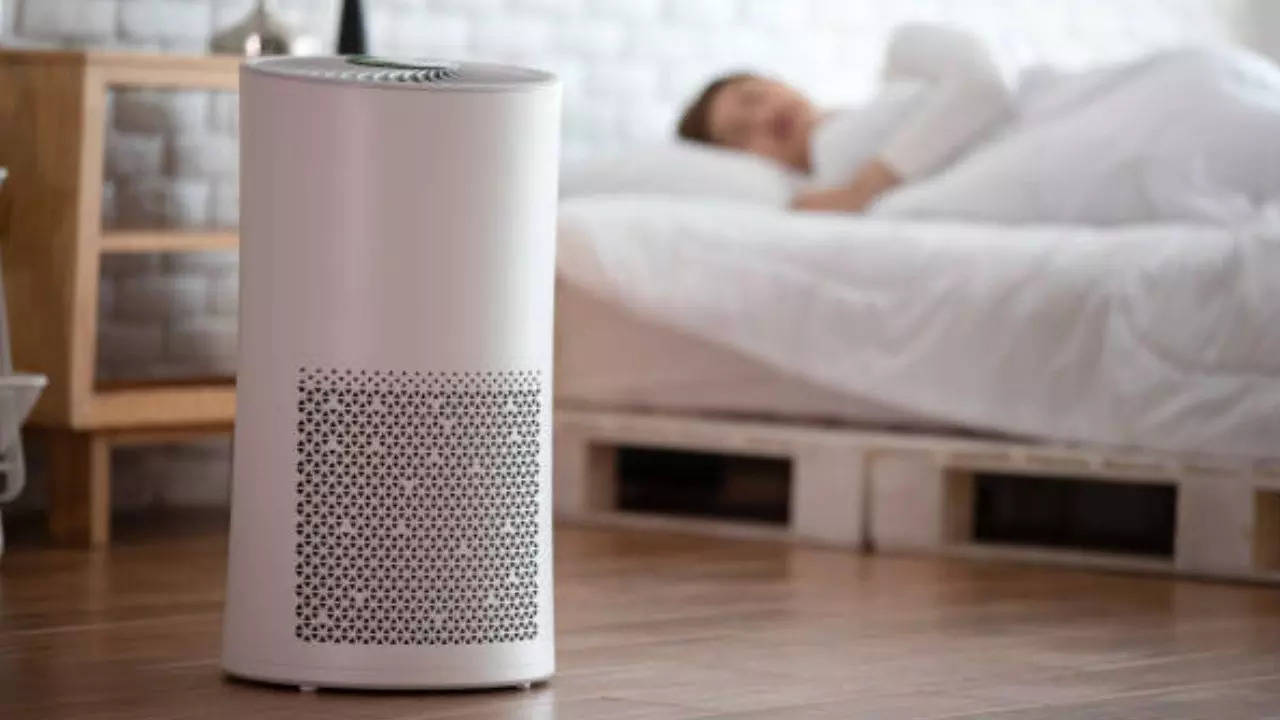Contents
-
news
-
Health
How much time is enough for an air purifier to protect yourself from Delhi’s polluted air? expert answer
Despite GRAP Stage 4 restrictions, Delhi-NCR’s air pollution remains severe, impacting respiratory and overall health. Air purifiers have become important in improving indoor air quality. But how long should you sit with the air purifier on? Read on to know the right way to use an air purifier and its potential drawbacks.

How much time is enough for an air purifier to protect yourself from Delhi’s polluted air? (Image credit: iStock)
Delhi-NCR is still battling with severe pollution levels which is not only increasing respiratory problems but also affecting overall health. Even after installation, the air quality index remains in the poor category. GRAP Phase 4 RestrictionsBan on construction and closure of schools in the National Capital Region. However, nothing is working except the air purifier. Air purifiers work as a life saver as they reduce allergens, pollutants and harmful particles which help in maintaining the room air quality. But should we spend our entire day with an air purifier? Is it safe to sit for long periods of time with the air purifier on? We contacted Dr. Suleman Ladhani, Pulmonologist, Wockhardt Hospitals, Mumbai Central, and Dr. Sheeba Kalyan Biswal, Clinical Director, Pulmonology, Respiratory & Sleep Medicine, Marengo Asia Hospitals, Gurugram, who explain the right way to use an air purifier.
Dr. Ladhani explains that air purifiers are generally safe and can significantly improve indoor air quality by reducing allergens, pollutants, and harmful particles. Dr. Biswal says that one should make sure to choose an ozone-free purifier as it can damage things. “Clean or replace the filter periodically and keep it in a properly ventilated area for better performance,” he said.
How long should a person sit in a room with an air purifier?
Both experts agree that air purifiers should ideally be kept on all the time, and not just when you enter a room, to maintain optimal air quality. Continuous operation helps continuously remove pollutants, allergens and fine particles from the air. “If you switch off the device at irregular intervals, it reduces its effectiveness. When using an air purifier, make sure it’s directed towards areas where you spend most of your time – like where you sit, work or sleep,” said Dr. Ladani.
According to experts, the size of the room also affects how long the purifier should run. For small to medium rooms, a few hours may be enough to see a difference, but larger spaces may require a longer period. In locations with pollution sources such as smoke or heavy cooking fumes, continuous operation of the air purifier is often necessary. In these cases, you may also need to ventilate by opening windows at regular intervals to prevent carbon dioxide build-up, which can cause other health problems.
Dr. Biswal says the purifier should be centrally placed in an open area away from walls or obstructions for optimal airflow. “Make sure windows and doors are closed when using an air purifier to keep out pollutants. Clean or replace the filter as needed to keep it efficient. Do not use the air purifier in wet or very humid locations. This reduces the effectiveness of the air purifier,” he said.
Drawbacks of using air purifiers
Although air purifiers are effective, they also have some potential drawbacks:
1. Noise Level: Some models can be noisy, especially when operating at high fan speeds. This can be disruptive, especially at night when you want a quiet environment to sleep. Before purchasing an air purifier, check the noise level to make sure it is suitable for your space.
2. Filter Maintenance: Filters in air purifiers require regular replacement to maintain efficiency. Neglecting to replace the filters can reduce the effectiveness of the purifier and cause allergens to accumulate inside the device, causing potential side effects. However, regular filter changes can be expensive, so it’s important to keep maintenance expenses in mind.
3. Ozone Emissions: Some air purifiers, especially those that use ionizers, may emit small amounts of ozone. Ozone can irritate the lungs and worsen symptoms in people with allergies or asthma. To avoid this risk, it is important to choose a model certified for safe ozone levels.
4. Dryness: Frequent use of air purifiers can reduce the humidity inside the house, making the air dry. This can cause dry skin, irritation of mucous membranes and discomfort, especially during winter when the air becomes dry. Consider using a humidifier with an air purifier if you notice excessive dryness in the air.
5. Ineffective in some cases: Air purifiers are also ineffective against pollutants trapped in surfaces such as carpet or furniture. They consume electricity, which increases energy costs. Excessive reliance on them may lead to neglect of other essential air-quality measures like regular cleaning and proper ventilation.
Get the latest news live on Times Now with breaking news and top headlines from around the world.


